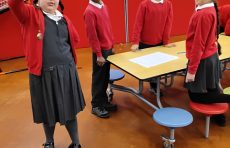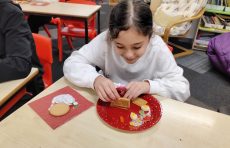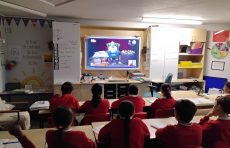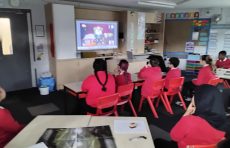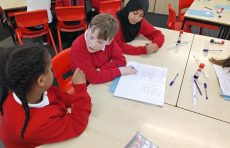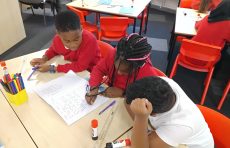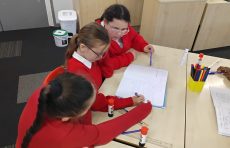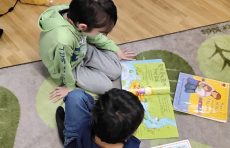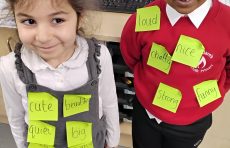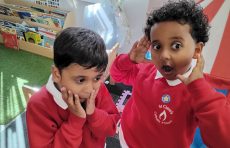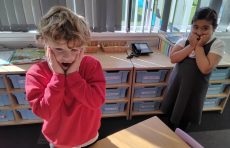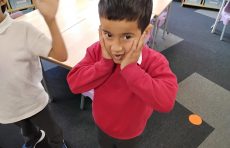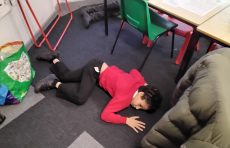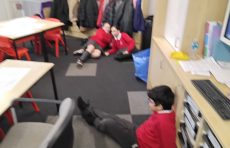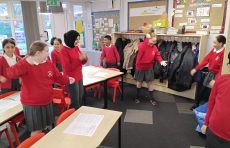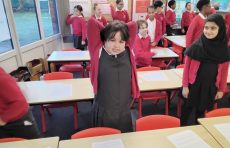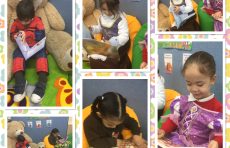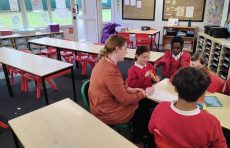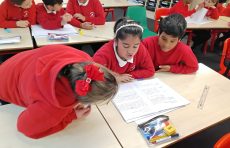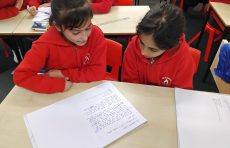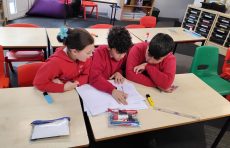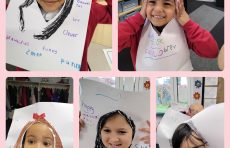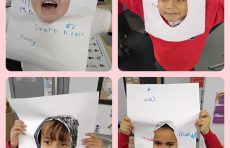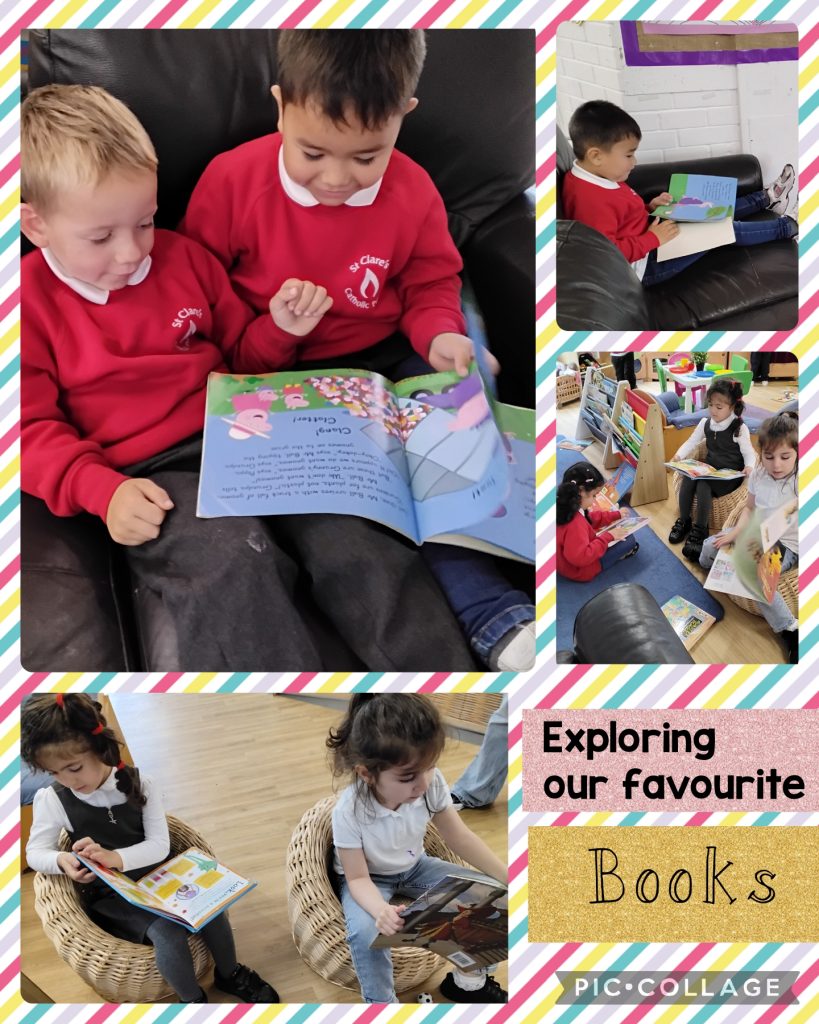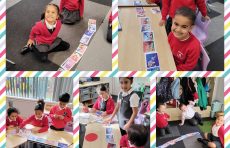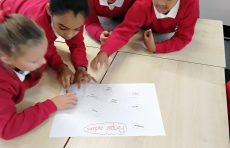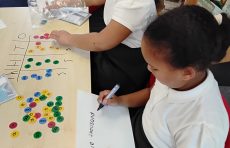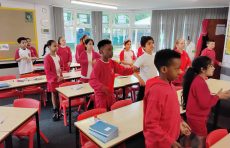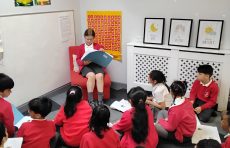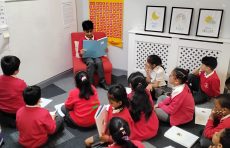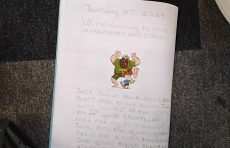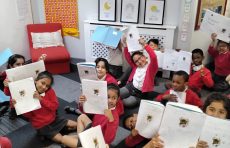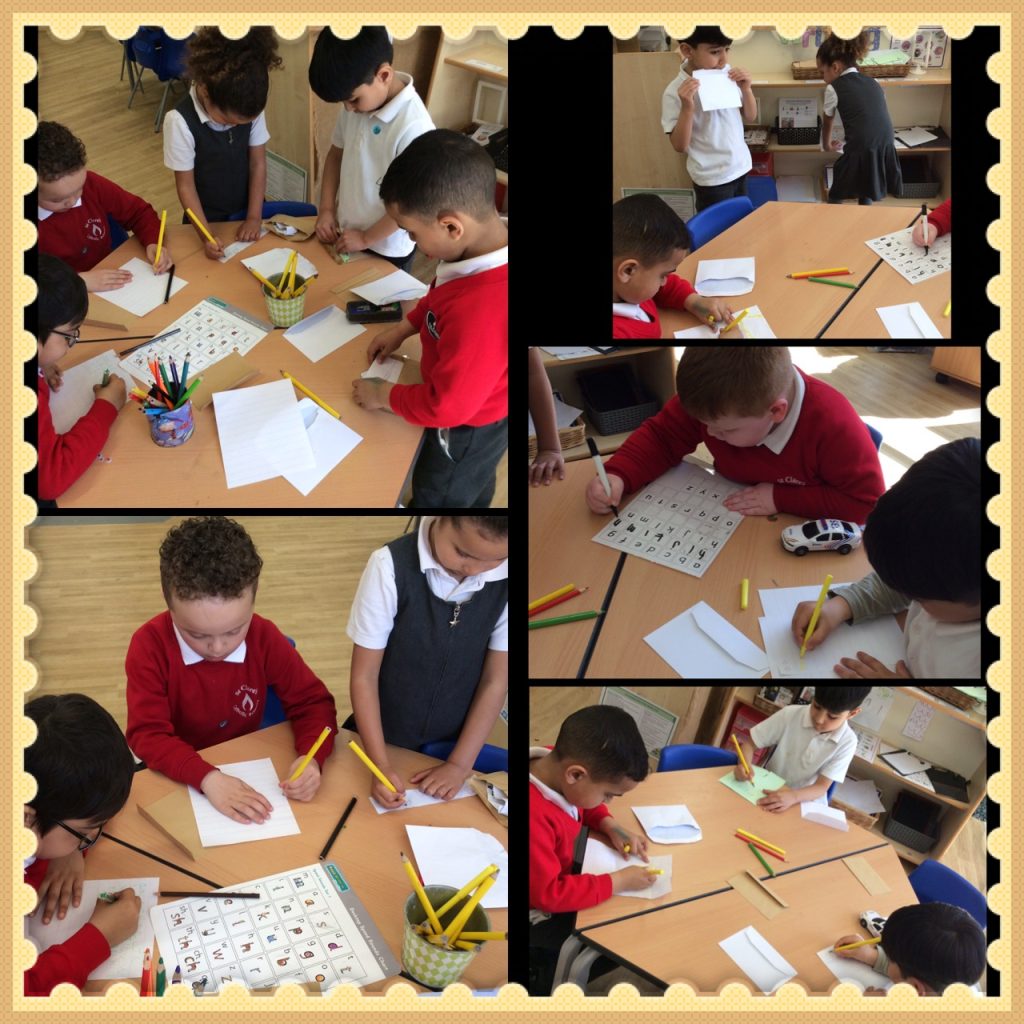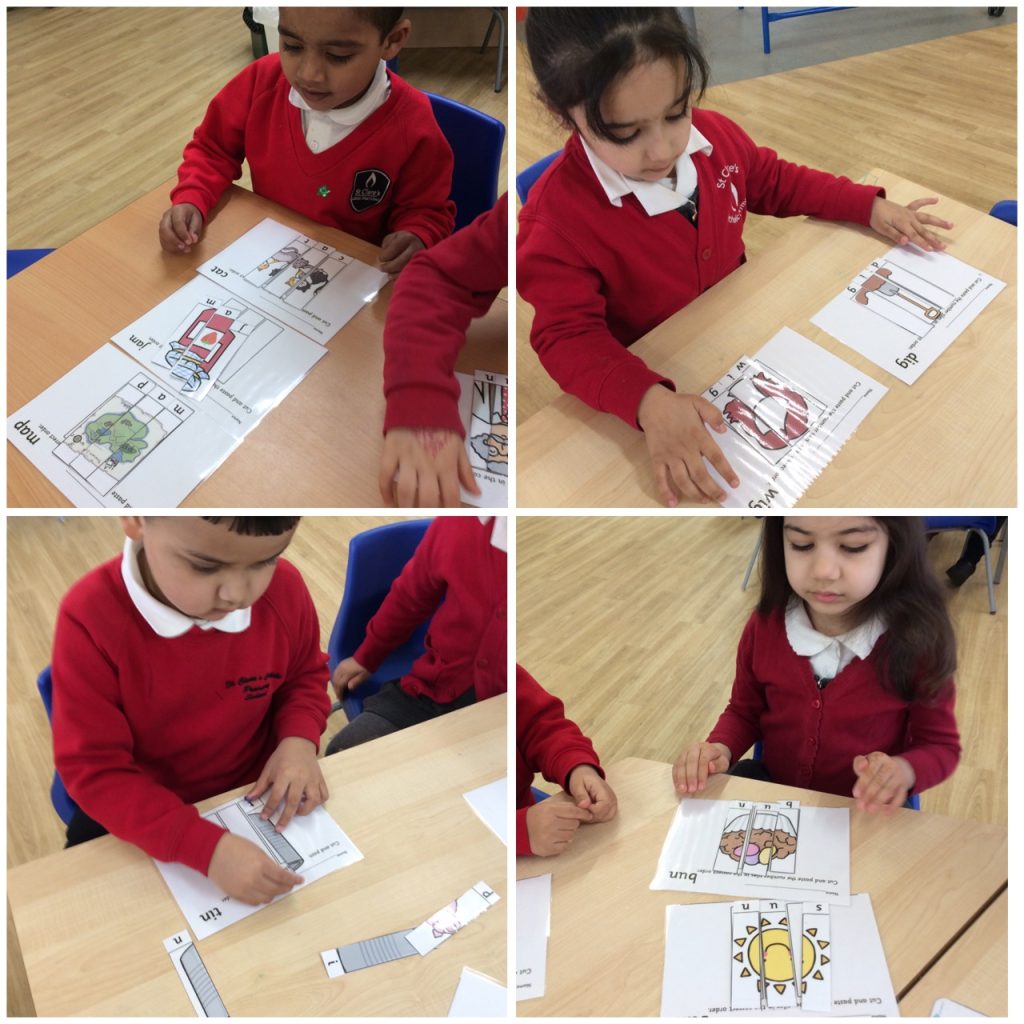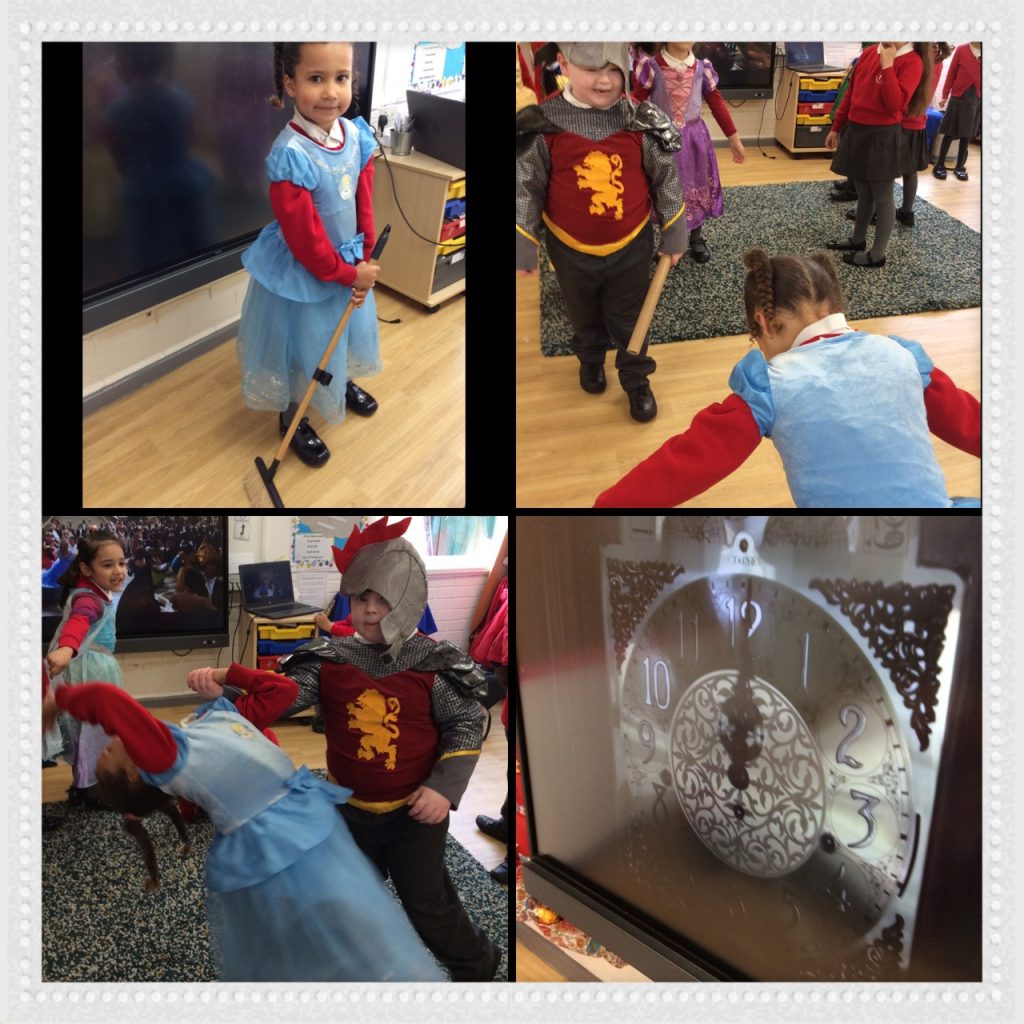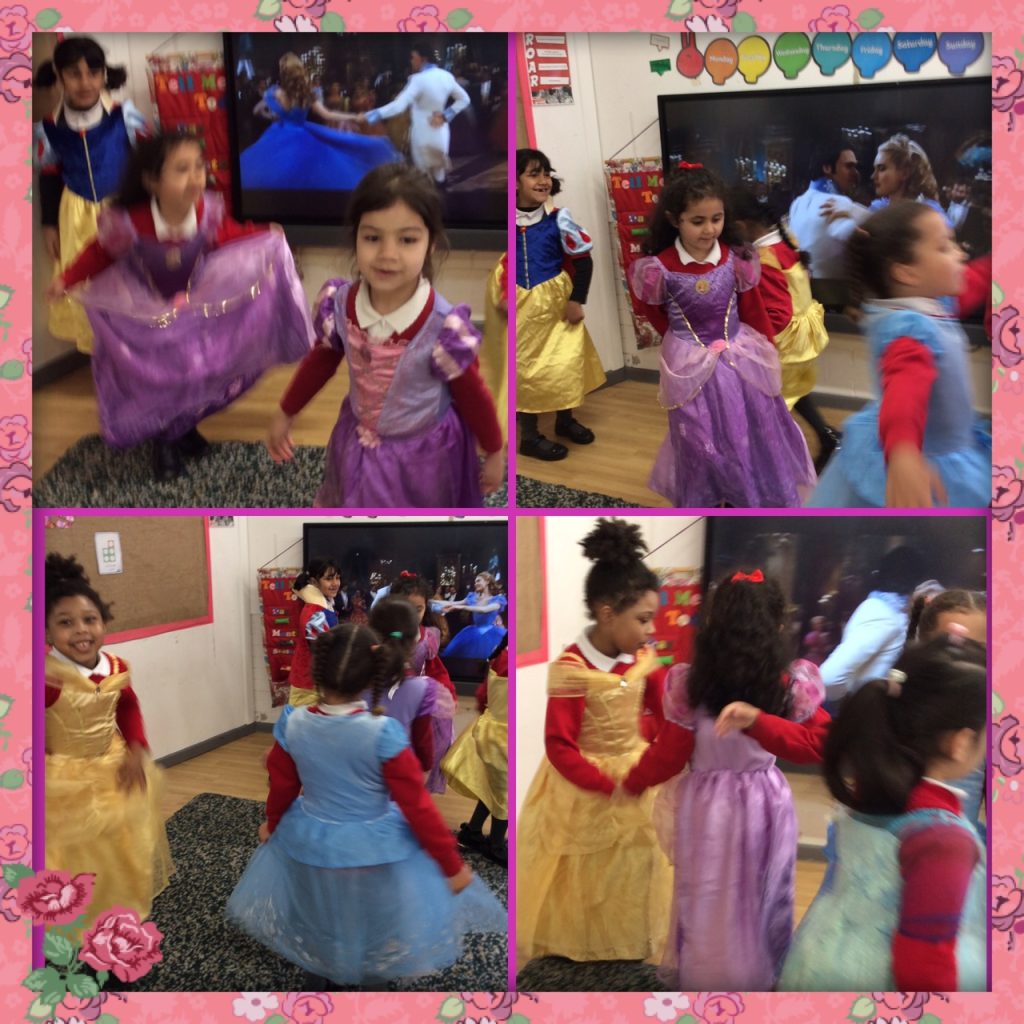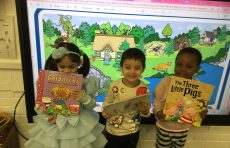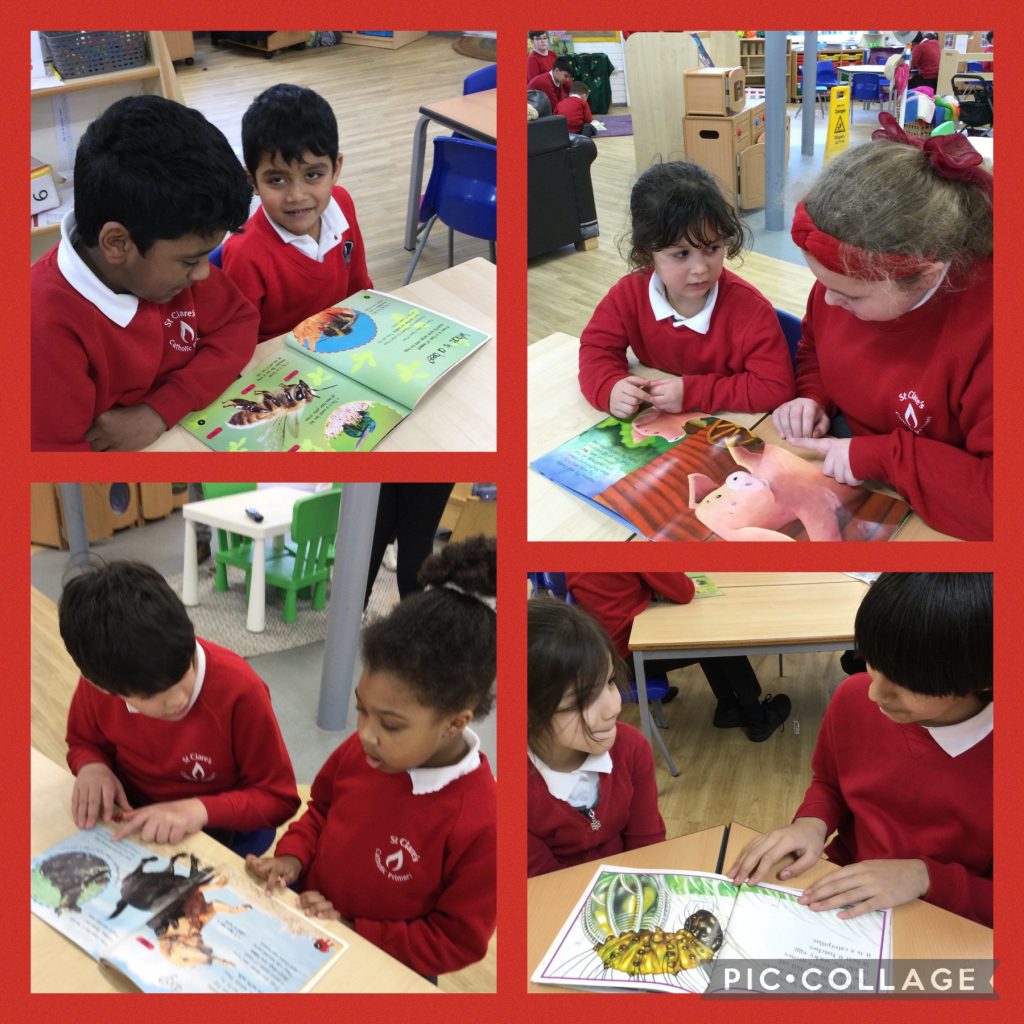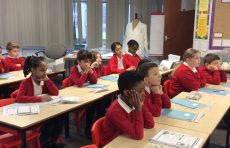“Every good gift and every perfect gift is from above.”
James 1:17
At St. Clare’s we teach our children that the ability to communicate and express ourselves through language is a precious gift from God. We encourage our children to value and develop their English skills, empowering them to share their thoughts and ideas with others effectively.
Catholic Social Teaching is integral to our whole curriculum. Here are some examples of where this can be seen in English:
Dignity of the Human Person We are all unique and have God given talents and qualities; the wide range of quality texts in our English curriculum, covering many genres, explore the dignity of human life and how we should protect and nourish this, through characters and human events.
Dignity of Work We recognise that work is a form of participation in God’s creation. Through the quality texts in our curriculum we aim to foster a deeper understanding of human work and creativity; allowing children to engage with stories that reflect the human experience.
Family and Community We recognise the importance of human relationships and mutual responsibility. The range of quality texts taught through our English curriculum explore the complexities of family dynamics, community bonds and social obligations.
Rights and Responsibilities We recognise the importance of rights and responsibilities by exploring quality texts that address issues of justice, equality and ethical duty. This enables children to read and discuss texts that depict struggles for human rights and the responsibilities individuals have to one another.
Solidarity and the Common Good We recognise the importance of social unity. Our English curriculum enables us to highlight the interconnectedness of human life and the importance of social unity. Children are given the opportunity to explore stories of empathy, community action and shared responsibility and consider how individual choices impact broader society.
Stewardship of God’s Creation We recognise our responsibility to protect and care for the world. Our English curriculum allows children to reflect on the ethical and spiritual dimensions of environmental stewardship, gaining insight into the importance of respecting and preserving creation for future generations.
The Option for the Poor and Vulnerable We recognise the Catholic commitment to prioritize the needs of the poor and vulnerable. Our English curriculum offers children perspectives on poverty, inequality and resilience. They engage with issues of social injustice, develop compassion for those in need and consider their own role in building a more inclusive society.
Intent
At St. Clare’s it is our intention to produce a lively and stimulating language environment in which staff are committed to teaching individual, group, and class activities, which promote rich and appropriate speaking, listening, reading, and writing experiences whilst valuing and celebrating diversity in culture and language.
Having previously been a ‘Power of Reading School’, we have adapted our reading and writing approaches to incorporate ‘Talk for Writing’ principles alongside Literacy Counts, creating an inspiring reading and writing curriculum. The children are provided with opportunities to explore and practise a range of genres from EYFS to Year 6.
Literacy skills open a world of academic success for children and we understand the importance of language in our children’s lives. We recognise that English is a core subject within the National Curriculum and essential for educational and social progress. Mastery over language empowers children to communicate creatively and imaginatively, as well as allowing them engagement with the world at large. Therefore, we aim to establish a curriculum which provides the necessary meaningful opportunities to develop competence in all language areas. The desire to embed and consolidate Literacy skills is reflected across our wider curriculum. Confidence in basic language skills enables children to communicate creatively and imaginatively, preparing them for their future journey through education and beyond.
Implementation
At St. Clare’s, children are given daily opportunities to explore and develop their reading, writing and oracy skills through a number of rich, engaging and creative activities in order to prepare them for the world they live in.
We understand that children need to be able to listen to and recall genres orally before writing their own, which is why we use the ‘Read to Write’ teaching resources by Literacy Counts as the basis of our English planning from EYFS to Year 6. It incorporates reading, writing, vocabulary and GPS skills through the teaching of high-quality texts each half term.
It is our aim to encourage children to learn to love reading and to read regularly in school and at home. We strive to ensure children can communicate clearly in written form and become masters of language. We promote reading throughout our curriculum and children are given opportunities to develop their reading skills every day.
We teach children at St. Clare’s to write using a cursive script from the beginning of their time here. We know that using a cursive script helps most children become more confident, fluent writers and helps improve spelling. We believe that good presentation skills are important as we want children to value their own work and for others to do the same.
We understand the importance of writing and language in our lives and we are committed to ensuring we do our absolute best to help the children in our care become creative writers and successful readers.
Impact
We strive to ensure that our children’s attainment is in line with or exceeds their potential based on their varied starting points and that children will make good progress in Reading, Writing, and Speaking and Listening. We measure this using a range of assessment materials and methods, whilst always considering the age-related expectations for each year group. We intend the impact of our English curriculum will ensure our pupils are academically prepared for life beyond primary school and throughout their educational journey. Literacy at St. Clare’s means not only to read, write, speak, and listen, but also to use language to learn, think, and communicate effectively.
Key Curriculum Documents
We are proud to work closely with School Readers

Schoolreaders, established in 2013, provide one-to-one reading support for children both at school and in their homes via three different means; face-to-face reading in classrooms, online reading support sessions and through the Schoolreaders Storytime video library. One-to-one reading support with an attentive adult helps children’s reading fluency, comprehension and enjoyment. It is a crucial supplement to classroom teaching for many children and will be vital in helping them catch up on literacy skills lost during school closures. As many as one in four children left primary school in 2019 unable to read well, and this figure will have been made worse by the COVID-19 crisis. These children are at a disadvantage because they are unable to access their secondary education properly and this has lifelong consequences. Schoolreaders’ aim is to make sure that every child can read well by the time they move to secondary school at the age of 11.
